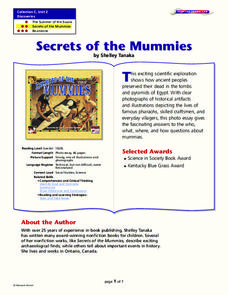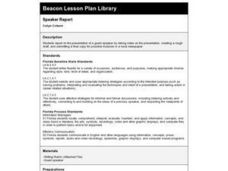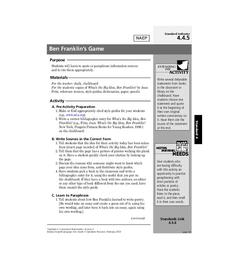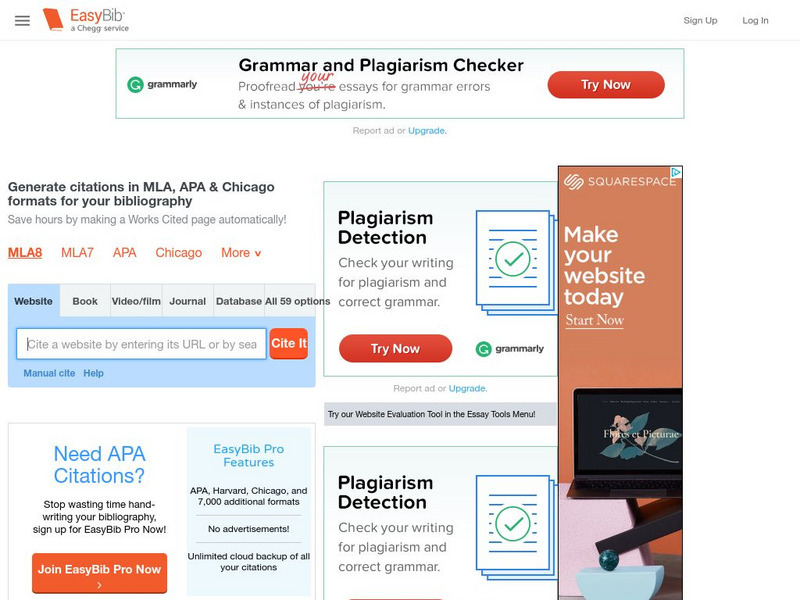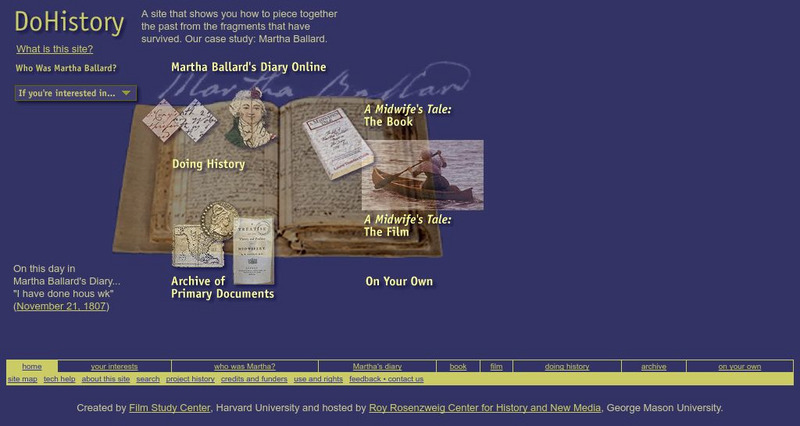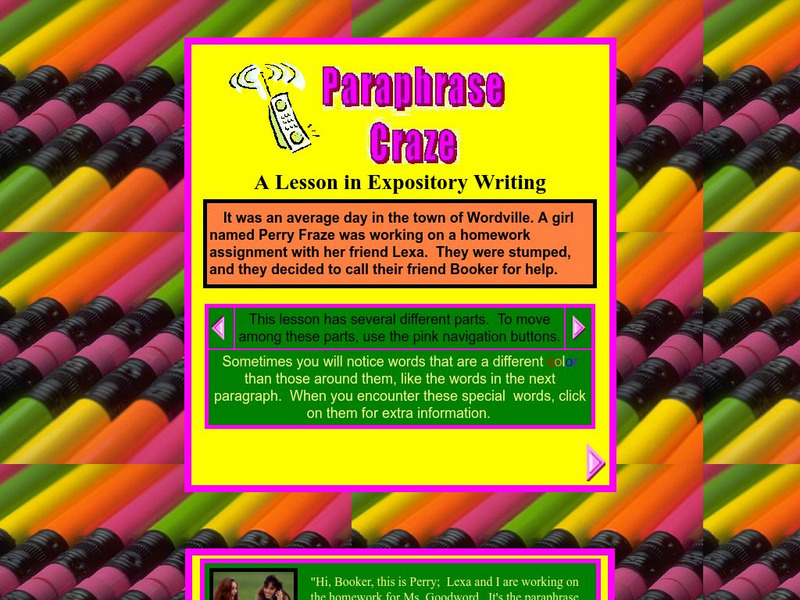Curated OER
Secrets of the Mummies
How did the ancient people of Egypt preserve their dead so well that their bodies are still recognizable today? Learn the painstakingly complex process they used for preservation. Young scholars read and summarize a narrative detailing...
Curated OER
The Daily Scoop
Pupils report classroom news. First, they write complete sentences using adjectives and adverbs to describe events. Next, they take turns presenting interesting news to the class using appropriate volume and clarity. As an extension,...
Curated OER
What Was That All About?
Through direct instruction, the teacher demonstrates how to identify the main idea and supporting details of a text when creating a summary. As a class, read a paragraph, highlighting relevant information and crossing out extraneous...
Curated OER
Researching the Past
Learners research the western movement in order to learn note taking strategies with nonfiction texts. They use the Internet to search for important information about the western movement using the Cornell Notes note-taking system. They...
Curated OER
Paraphrasing and Summarizing
Read an article about the migration of our ancestors and write a paragraph. Pupils paraphrase and summarize to restate the information found in a nonfiction text. They write a shortened version of the reading to demonstrate the...
Curated OER
Meaty Words
Headlines from newspapers launch a discussion of image-rich, meaty words. Just as headline writers choose vivid vocabulary to attract readers, young writers develop headlines that capture the essence of a passage from a book they are...
Curated OER
Writing a Summary
Skim, reread, and then take notes. The step-by-step procedure outlined in this resource can be used to help pupils write a summary of a reading passage. Using their notes, class members then draft a summary focusing on the main idea and...
Curated OER
Speaker Report
Fifth through eighth graders think of themselves as newspaper reporters as they listen to a presentation by a guest speaker. As reporters, they take notes during the presentation. Using these notes, they create a rough draft and then a...
Curated OER
Summarization Superstars
How do you read when you know you're going to be summarizing a text? Summarize a nonfiction text with your upper elementary schoolers. Your pupils independently read a nonfiction article and write a summary paragraph using the six-step...
Curated OER
Teaching Summarization
Examine the process of summarizing a piece of text using the book So You Want to Be a President? Kids review the definitions for main idea, topic sentences, superordinate terms, and supporting details. Next, they work in small...
Curated OER
Listening To a Guest Speaker
Pupils review the main points of note-taking to summarize the content of a formal or informal spoken presentation. They hear a guest speaker talk about a pre-arranged topic and take notes during the presentation. Next, they write a...
Curated OER
Ben Franklin's Game
A reading of What's The Big Idea, Ben Franklin? provides an opportunity for class members to practice paraphrasing, quoting, and citing sources. An exercise on how to avoid plagiarizing is also included.
Other
Easy Bib
This citation site provides a means for formatting bibliographical information via MLA, APA, Chicago, and other referencing methods. Students can also find tools for note-taking and research on EasyBib.
Other
Do History: Using Primary Sources
This site explains the difference between a primary and secondary source. It also provides students with questions to ask when gathering evidence about a primary source document.
ReadWriteThink
Read Write Think: Research Building Blocks: "Cite Those Sources!"
Contains plans for two lessons about the research process. Students discuss plagiarism, practice paraphrasing, and cite sources. In addition to objectives and standards, these instructional plans contain links to sites used in the...
Online Writing Lab at Purdue University
Purdue University Owl: Exercise: Basic Level Paraphrase and Summary Writing
Practice paraphrasing sentences and summarizing short paragraphs.
Other
How to Compile a Bibliography
This site provides basic guidelines and examples for how to compile a bibliography. Grade levels listed 1st through 6th.
University of California
Cal Heritage Collection: Using Primary Sources
This resource covers what primary sources are, where we can find them, and how we can assess them in the classroom.
Beacon Learning Center
Beacon Learning Center: Paraphrase Craze: A Lesson in Expository Writing
This tutorial focuses on how to paraphrase using an excerpt from Poe's short story, "The Tell-Tale Heart." It defines paraphrase and plagiarism, presents examples, and explains what is incorrect about them. It is interactive asking for...


